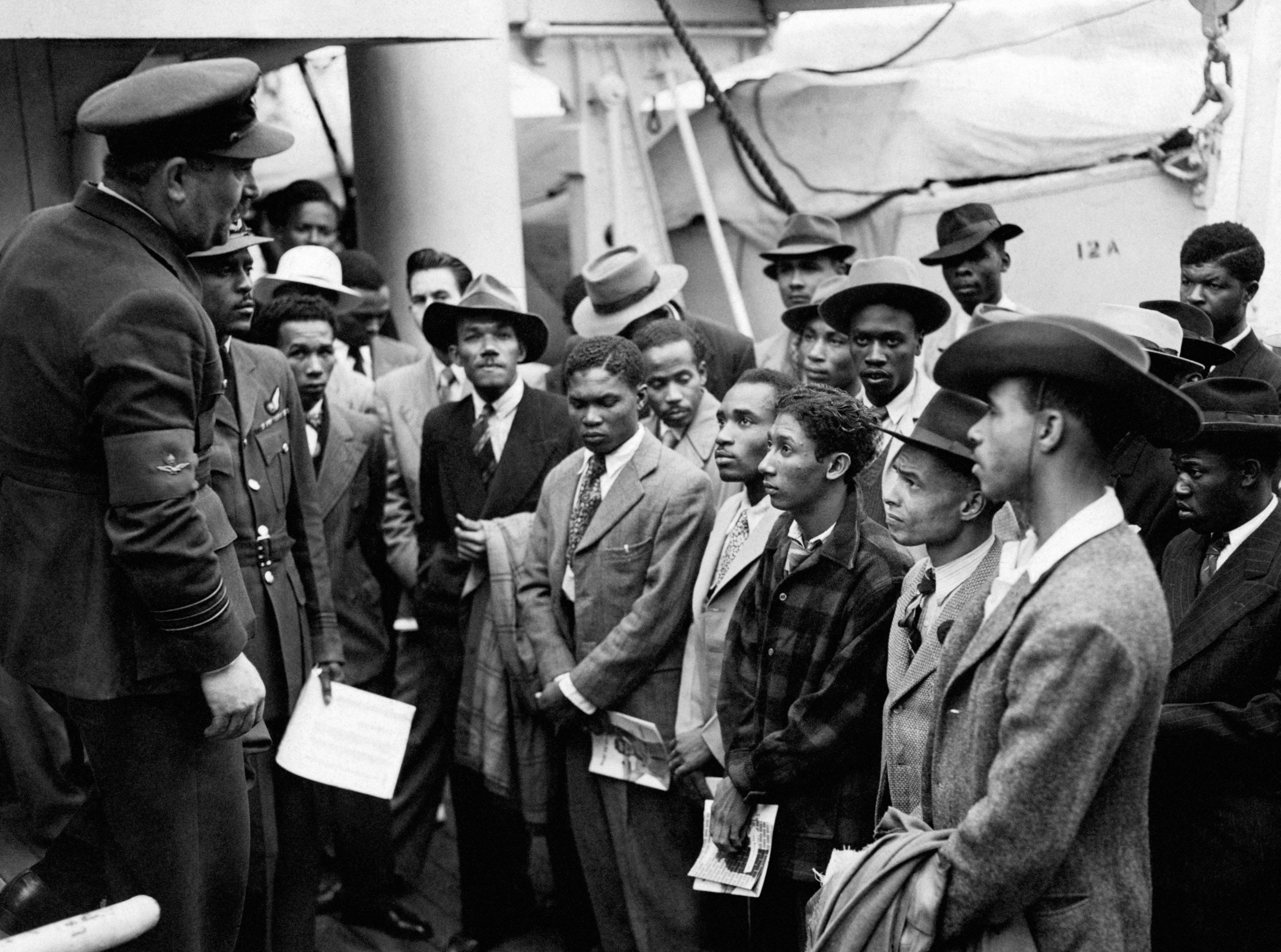Dreams and courage of Windrush generation honoured with new statue
The monument will be revealed at Waterloo Station on Wednesday to mark Windrush Day.

Your support helps us to tell the story
From reproductive rights to climate change to Big Tech, The Independent is on the ground when the story is developing. Whether it's investigating the financials of Elon Musk's pro-Trump PAC or producing our latest documentary, 'The A Word', which shines a light on the American women fighting for reproductive rights, we know how important it is to parse out the facts from the messaging.
At such a critical moment in US history, we need reporters on the ground. Your donation allows us to keep sending journalists to speak to both sides of the story.
The Independent is trusted by Americans across the entire political spectrum. And unlike many other quality news outlets, we choose not to lock Americans out of our reporting and analysis with paywalls. We believe quality journalism should be available to everyone, paid for by those who can afford it.
Your support makes all the difference.A national monument will be unveiled in one of London’s biggest train stations to pay tribute to the “dreams, ambition, courage and resilience” of the Windrush generation.
The statue – of a man, woman and child in their Sunday best standing on top of suitcases, will be revealed at Waterloo Station on Wednesday to mark Windrush Day.
It was designed by the Jamaican artist and sculptor Basil Watson, who said he was “truly honoured” to have been chosen when the Government shared details of the monument last October.
The Government, which has provided £1 million in funding for the project, said it will “create a permanent place of reflection and inspiration and be a visible statement of our shared history and heritage”.
It comes as famous faces including actor Lenny Henry, poet Benjamin Zephaniah, broadcaster Trevor Phillips, historian David Olusoga and cross-party politicians called for Windrush Day 2023 to be a “major national moment”.
Next year marks 75 years since the arrival of HMT Empire Windrush at Tilbury docks in 1948, bringing 500 passengers from the Caribbean.
More than 100 leaders from politics, faith and civil society, sport, culture and business have signed a joint letter, published in The Times newspaper, starting the one-year countdown to the milestone.
They write: “This is not only black History – it is British history. It should be something we all know and commemorate.
“We call on the Government and all UK institutions, from politics to civil society, faith, culture, business and sport, to step up and fully play their part next year.”
The arrival of the Windrush in 1948 has come to symbolise how Britain’s past has shaped the society we live in today
Sunder Katwala, director of independent think tank British Future, said: “The arrival of the Windrush in 1948 has come to symbolise how Britain’s past has shaped the society we live in today.
“The 75th anniversary is a chance to mark that important historic moment and also to chart the future we will share together.”
Patrick Vernon, convenor of the Windrush 75 network, set up to co-ordinate efforts over the next 12 months, added: “It’s something we should commemorate as a major event and a piece of our history that every child should learn about at school.
“It is something every institution should be marking in a significant way.”
Research commissioned for the network and think tank to mark Windrush Day found that 64% of the public thinks children should be taught about Windrush to help understand Britain’s history of empire and its diverse society.
Just 9% of people disagreed, according to the survey of 2,006 British adults by Focaldata between February 28 and March 7.
Almost half (49%) of those surveyed said they are familiar with the story of the Windrush, while 46% said they would like to know more about it.
It comes as separate polling released on Windrush Day found that 70% of British adults from an ethnic minority background think racist beliefs are widely held in society.
Almost two-thirds (64%) of ethnic minority respondents said they had experienced discrimination, down from 73% in 2020. And 42% said they had experienced abuse, down from 52% the previous year.
The survey found that “Kiddigrants” – the children of immigrants – are more likely to report experiencing discrimination compared to those born outside the UK (74% versus 55%).
Almost three-quarters (73%) of kiddigrants think racist discrimination is common in the UK, compared to 60% of those born abroad.
The study was carried out by the market research agency Opinium and reboot, a voluntary-led campaign group which seeks to promote greater ethnic diversity within the workplace.
The findings are based on an online survey of 2,000 UK adults and an online survey of 2,000 people from ethnic minority backgrounds.